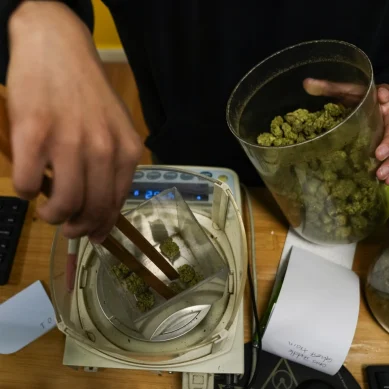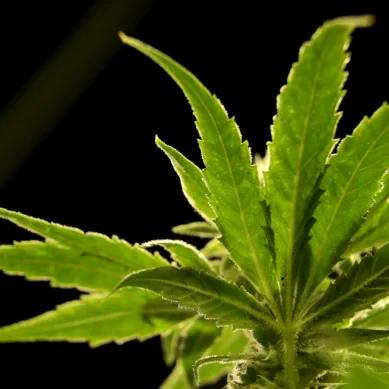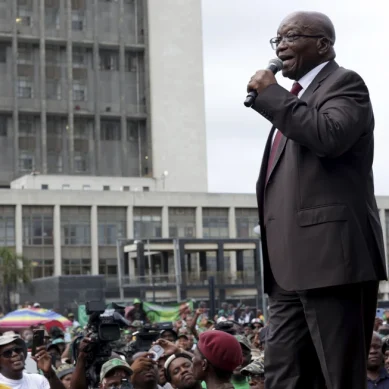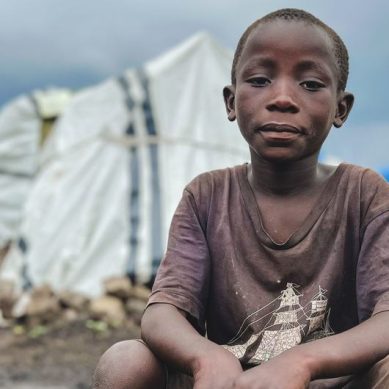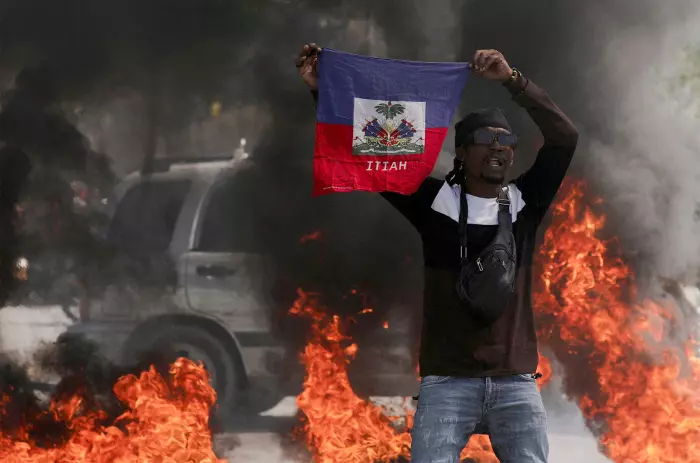
A transitional presidential council is taking shape in Haiti, even as rampant gang violence spreads into wealthy areas of the capital amid lingering divisions over the best path forward, notably over the deployment of a largely US-funded security assistance mission.
Gangs began unleashing their violence on upscale neighbourhoods of the capital, Port-au-Prince, on 18 March, leaving at least 24 people dead in the streets of Pétion-Ville, and homes looted across the communities of Laboule and Thomassin.
At a glance: Haiti plots a path out of chaos
- After weeks of escalating gang violence, a transitional presidential council hopes to restore calm
- It’s slated to appoint a new interim prime minister and pave the way for elections, which haven’t been held since 2016
- Gangs joined forces to call for the ouster of acting prime minister Ariel Henry, attacking police stations, the international airport, and the main seaport
- Due to the violence, Henry was unable to return home after a trip to Kenya to shore up a security assistance mission, and remains stranded in Puerto Rico
- Henry has pledged to resign when the formation of a transitional presidential council is complete, but the gang violence has continued to spread
- Dozens of people have been killed this month, and humanitarian emergency assistance to 1.4 million on the brink of starvation has been massively disrupted, with health facilities forced to close
- With the Kenyan courts and some Haitians against it, the deployment of the UN-authorised security assistance mission remains uncertain
- But with gangs now controlling 95 per cent of Port-au-Prince and threatening to seize the presidency, many feel there’s no alternative
In poorer areas down below, food and water have been scarce for days, while hospitals and clinics have been forced to close, even as numbers requiring urgent medical attention soar. Thousands have been displaced, while the ability of humanitarian actors to provide emergency assistance has been massively disrupted.
Haiti has been facing increased violence since the assassination of President Jovenel Moïse in July 2021, but it surged to a whole new level on February 29, when gang leader Jimmy Chérizier called on other gangs to join forces in a Viv Ansanm (Living Together) coalition and overthrow acting Prime Minister Ariel Henry.
While Henry was abroad trying to shore up Kenya’s leadership of the UN-authorised Multinational Security Support (MSS) mission, the gangs launched coordinated assaults on government buildings (including the presidential palace), police stations, and key infrastructure, attacking the airport and taking control of the main seaport. They also freed around 4,000 inmates from two prisons.
Henry, who remains stranded in Puerto Rico and is unable to return due to the security situation, has pledged to step down as soon as a presidential council is formed. This pledge has not placated some of the gangs, many of which have political connections.
Complicating matters is the fact that backing the deployment of thousands of foreign security forces to help quell the gangs is a prerequisite for membership on the council – a plan drawn up last week by the regional Caribbean Community (CARICOM) in conjunction with US officials, Haiti’s main political groups, and key members of Haitian civil society and the diaspora.
As of early on 20 March, CARICOM was still short of one name for the council, amid fears that a continued delay could give gangs time to seize power and install their own leader.
“It’s a risk,” a source familiar with the negotiations said, requesting to speak on condition of anonymity. “Gangs are in control of Port-au-Prince. The police have been fighting back, but they are handicapped by their number, the lack of equipment, of firepower and the fact that the gangs are attacking several places at the same time.
One of the intentions of the attack on the palace was for the gangs to take over the presidential palace and say that somebody will be the new person in charge of the country. That can still happen.”
Gang members sit together on the street after an address to the media in Port-au-Prince by former police officer turned gang leader Jimmy Chérizier, on 11 March 2024.
Haitian stakeholders eventually agreed to form a presidential council of seven voting members and two observers (some reports suggest it may now be nine voting members). It is set to include members from three traditional political parties, a civil society group known as the Montana Accord, and representatives of the business sector. The council’s tasks will include selecting a new prime minister and preparing a roadmap towards elections, which haven’t been held since 2016.
“To me, [the presidential council] is an opportunity for Haitians to work together while the conditions for a return to the constitutional and democratic order are created,” said Clarens Renois, general coordinator of the National Union for the Integrity and Reconciliation (UNIR) party – a member of one of the coalitions with a seat on the council. “But if there is no security that provides a safe and stable environment, it will be difficult.”
The council faces opposition from Haitians supporting former police chief, senator and paramilitary leader Guy Philippe, who reportedly has his eyes on the presidency. Former senator Jean-Charles Moïse, one of Philippe’s key allies, rejected CARICOM’s plan and a seat on the council, insisting they would set up a separate three-member one of their own choosing.
Haiti’s historical descent towards poverty, hunger and unbridled insecurity has largely been determined by the intervention of foreign actors.
The Caribbean nation first fell into debt due to the billions it had to pay to France in compensation for its independence from colonial rule. Decades of dictatorship, a series of natural disasters, a long US military occupation and trade embargo further weakened the country.
More recently, the deployment of a 13-year-long UN “stabilisation” mission – MINUSTAH – and US support for the unelected Henry have contributed to the upheaval.
“This is not something that began last week or last year,” explained Jake Johnston, senior research associate at the Centre for Economic and Policy Research in Washington and author of “Aid State: Elite Panic, Disaster Capitalism, and the Battle to Control Haiti”.
“This has been a long time coming… And at its core is the failure of the state to represent its population and the failure of outside actors whose intervention have helped bring this situation to its current state.”
- The New Humanitarian report
